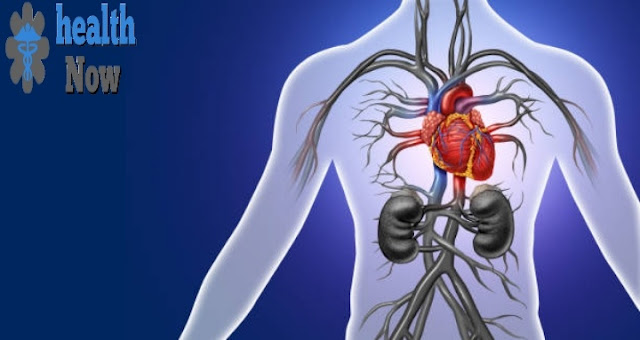Definition of congenital heart disease.
Congenital heart disease (congenital heart defect) is one or more abnormalities in the structure of the heart that may be discovered at birth. too complicated, which can cause life-threatening complications.
Doctors explained that if a person has congenital heart disease, they may need lifelong care.
Symptoms of congenital heart disease.
Some congenital heart disease causes no signs or side effects. For some individuals, signs or indications appear along the way and may recur long after the heart malformation has been treated.
Common congenital heart disease symptoms include:
- Abnormal heartbeat (arrhythmia).
- Blue change in the color of the skin, lips, and nails (cyanosis).
- Shortness of breath.
- Rapid fatigue with minimal effort.
- Swelling in body tissues or organs.
Congenital heart disease causes.
Analysts have not tracked the causes of most types of congenital heart disease. Some congenital heart diseases can be passed genetically between relatives.
What if we take a look at how the heart works to get an idea ofcongenital heart disease.
- The heart is divided into two upper chambers (the atria) and two lower chambers (the ventricles).
- The right half of the heart draws blood to the lungs through the veins (respiratory cycles).
- In the lungs, the blood absorbs oxygen and then returns to the left half of the heart through the respiratory veins.
- The left half of the heart draws blood through the aorta and out to the rest of the body.
Congenital heart disease can affect any of these parts of the heart, such as the veins, valves, chambers, and the spacers of tissue that are different from the chambers (septum).
Other factors are tribtributete to congenital heart disease.
َََSome natural and genetic variants of gambling may play a role in congenital heart disease, including:
- your qualities. Congenital heart disease appears to run in families (acquired) and is linked to many genetic disorders. For example, children with Down's disorder regularly experience heart defects. Genetic testing can identify Down's condition and various problems during the juvenile period.
- German measles (German measles). Having rubella during pregnancy may affect how the baby's heart is formed while it is in the tummy.
- Diabetic. Having type 1 or type 2 diabetes during pregnancy may also affect the progression of the baby's heart. Gestational diabetes often does not extend the disease to congenital heart disease
- drugs. Taking certain prescription medications during pregnancy can lead to congenital heart disease and other birth defects. Prescriptions related to heart deserts include lithium, which is used for bipolar disorder, and isotretinoin (Claravis, Morisan, Xenatan, and others) which is used to treat dermatitis. Continuously educate your primary care physician about the medications you are taking.
- cocktails; Likewise, drinking alcohol during pregnancy increases the risk of heart problems in the baby.
- smoking. A mother who smokes during pregnancy has an extended gamble of having a child with an inborn heart defect.
Complications of congenital heart disease.
Complications of congenital heart disease that may appear long after treatment include:
- Sporadic heartbeat (arrhythmia). An arrhythmia occurs when the electrical signs that direct the pulse doesn't work regularly. The heartbeat may be excessively fast, too slow, or choppy. In some individuals, severe arrhythmias can cause a stroke or sudden cardiovascular death if not treated. Scar tissue in your heart from previous medical procedures can add to this complication, too.
- Heart infection (endocarditis). Endocarditis is an infection of the inner membrane of the heart (endocardium). This exacerbation most often occurs when microbes or various microorganisms enter the circulatory system and travel to the heart. Assuming this type of exacerbation is left untreated, it can damage or obliterate the heart valves or cause a stroke. Assuming you are at risk of developing endocarditis, it is suggested that you take anti-infective agents an hour before brushing your teeth. So regular dental exams are important. Healthy gums and teeth reduce the entry of microbes into the circulatory system.
- An assault on the mind. Inborn heart failure can cause blood clots to pass through the heart and travel to the brain, where it reduces or obstructs blood flow.
- Pulmonary hypertension. This type of high blood pressure affects the ducts in your lungs. Some innate heart deserts lead to increased blood flow to the lungs, which leads to high stress. This eventually leads to heart muscle malfunction and then disappointment d then.
- Cardiovascular collapse. Cardiac disappointment (congestive cardiovascular collapse) indicates that the heart cannot draw enough blood to treat your body's problems. A few types of internal coronary artery disease can lead to cardiovascular collapse.
congenital heart disease treatment.
Congenital heart disease can often be effectively treated in young adults. In any case, some heart abnormalities may not be so kidding that they should be addressed during adolescence, but they can cause some problems as you age.
Treatment for congenital heart disease in adults also depends on the severity of the problem with your heart. Your condition may be primarily examined or you may need medication or a medical procedure.
Congenital heart disease in its beginnings.
Generally, minor heart deformities might require just intermittent exams with your PCP to ensure your condition isn't deteriorating. Ask your primary care physician how regularly follow-up visits are required.
Treatment of congenital heart disease with medication.
Some basic inborn heart deformities can be treated with drugs that assist the heart with working all the more actually. You may likewise require meds to forestall blood clumps or to control an unpredictable heartbeat.
Surgical treatment of congenital heart disease.
- Few medical procedures and strategies are accessible to treat adults with congenital heart disease. A few medical procedures and strategies are accessible to treat adults with internal coronary artery disease.
- Implanted Heart Instruments. An instrument that helps control the heart by grading (a pacemaker) or treating unexpectedly dangerous heart rhythms (implantable defibrillator, or ICD) may increase some of the complications of inherent cardiac surrender.
- Catheter-based treatments. Some intrinsic abnormalities of the heart can be repaired using catheter methods. These medications allow repairs to be made without a medical procedure for an open heart. All things considered, the specialist inserts a flimsy cylinder (catheter) into a vein or supply route in the leg and guides it to the heart with the help of X-ray images. When the catheter is fitted, the specialist inserts small devices through the catheter to repair the deformity.
- An open heart medical procedure. If the catheter method cannot repair the heart defect, your primary care doctor may suggest an open-heart procedure.
- Heart transplantation. Assuming the cardiac malformation is too serious to even consider treatment, a heart transplant may be an option.
Prevention of congenital heart disease.
Young children must have congenital heart disease, assuming their parents have it. Your primary care doctor may suggest prescriptive or genetic testing, assuming you plan to have children.



